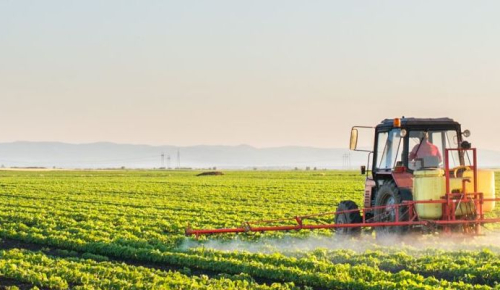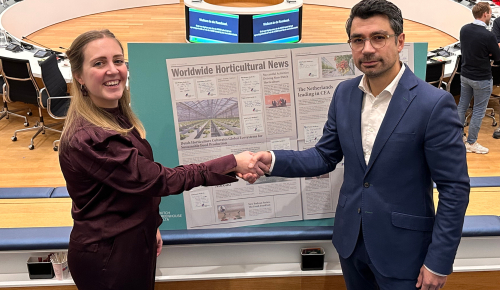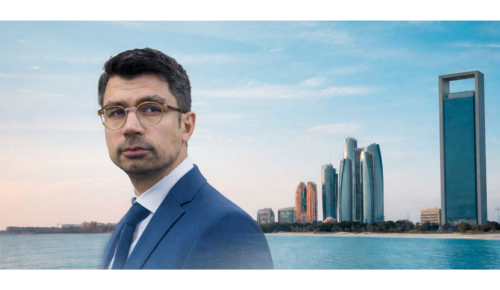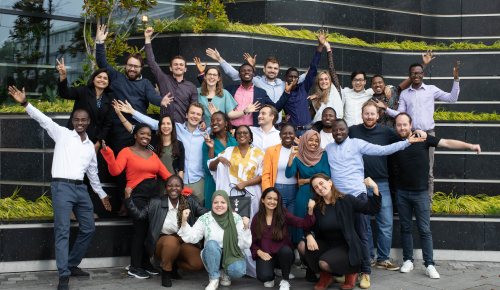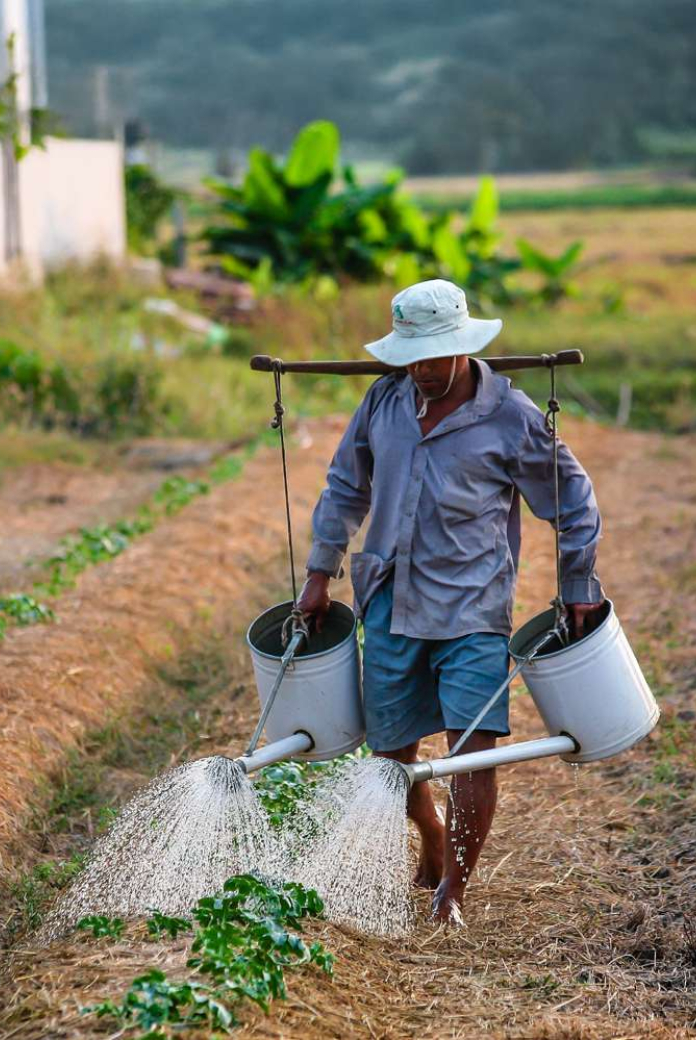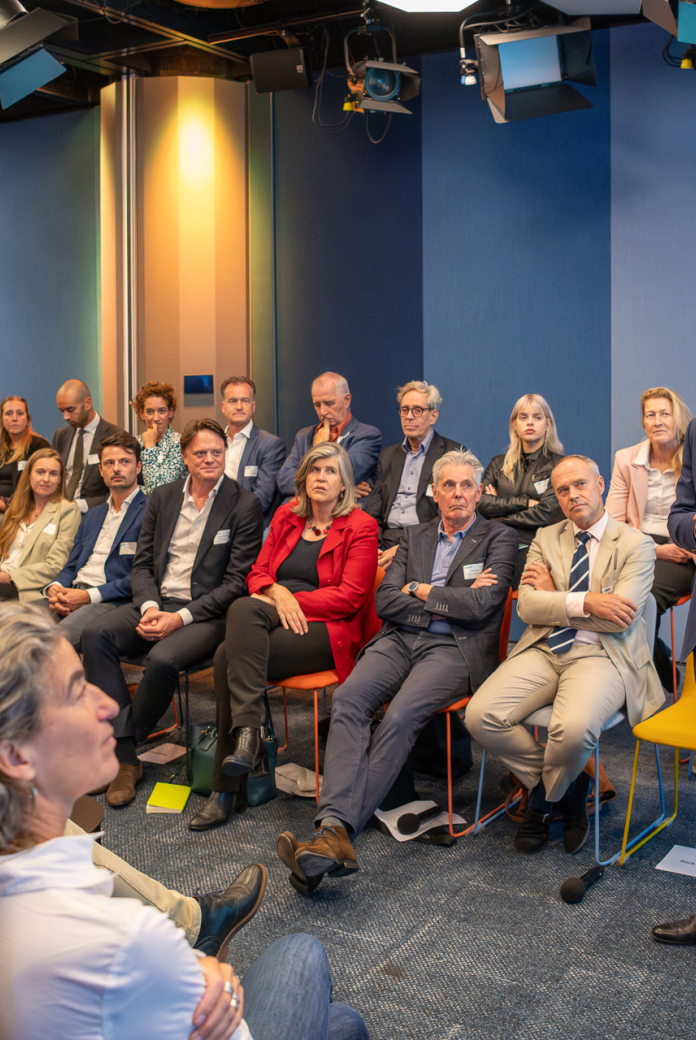News
7 May 2020Water in horticulture: the power of combining research and business strengths
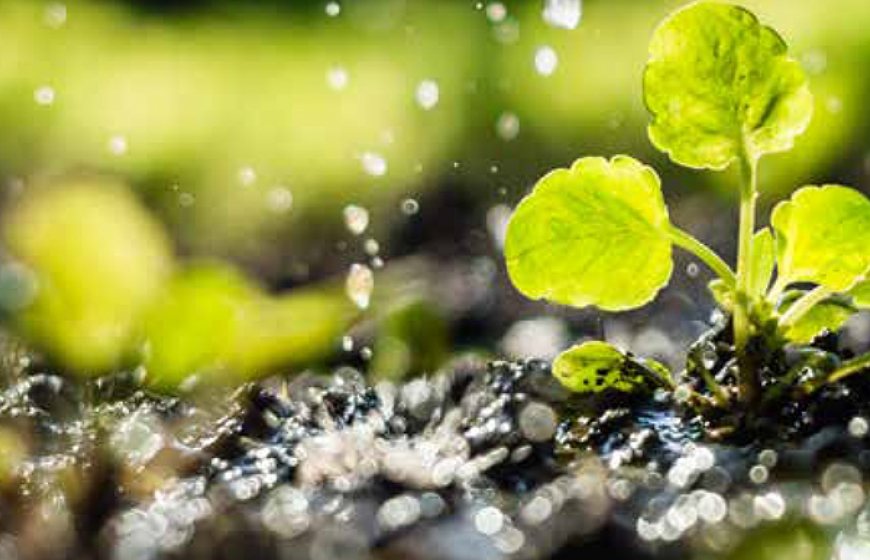
On 21 April, researchers, water tech entrepreneurs and Dutch growers came together in an online webinar entitled ‘Water in Horticulture’. The webinar centred around the topics: circular water use; water storage; internal water quality; and recovery and reuse of fertilisers. The participants jointly concluded that there are plenty of business opportunities, but that commercial gain will not come by itself. Research and business must keep working together intensively. If they do so, and if they choose a cross-sectoral approach, this will lead to innovative solutions that will not only be valuable for the Netherlands, but for the entire world.
The webinar was organised by two of the Dutch Top Consortia, TKI Water Technology and TKI Horticulture & Starting Materials, in collaboration with the Netherlands Water Partnership (NWP), Water Alliance and Envaqua. With more than 70 participants, the session had representative views on current and upcoming challenges, as well as solutions and opportunities in water in horticulture.
Challenges
Some of the current challenges were presented by Jim van Ruijven, researcher at NWP member Wageningen University. He outlined the complex recycling processes that Dutch growers must deal with, especially when using crop protection products. In 2021, it will be mandatory for all companies using these products to purify their discharge water and remove at least 95% of the products. Looking further into the future, there is more ambitious legislation coming up. Stricter European and national legislation will require the sector to become emission-free by 2027, also implying a more efficient use of water. Another major challenge in terms of water recirculation is the ability to selectively remove inorganic and organic substances the water that are harmful to plants.
Dutch solutions
Other speakers presented a wide array of innovations, solutions and ideas. For example, Willem van Baak of WaterFuture showed how sodium can be efficiently removed from recirculating water. Cees de Haan of Agrozone talked about the use of ozone to disinfect water used for cultivation. Marcel Paalman of NWP member KWR Water Research Institute spoke about his research into the reuse of residual water flows and water quality in greenhouses. And Hugo Vreugdehil of the Delfland Water Authority provided information about Rainlevelr, a project aimed at preventing floods after excessive rainfall by temporarily keeping water in growers’ water basins.
Innovation
Moderator Jantienne van der Meij-Kranendonk, director of the TKI Water Technology, was satisfied with the outcomes of the webinar. She noted that “the webinar was well attended, and it was good to hear that entrepreneurs are interested in participating in research for solutions towards an emission-free horticulture sector.” Researchers and entrepreneurs meeting in webinars like this is a key element in innovation. According to Van der Meij-Kranendonk, “this type of regular mutual exchange of knowledge helps link research projects to real market demands. This is how we have always managed to build the advanced knowledge base that we have in the Netherlands.”
Cross-sectoral approach
Renske Verhulst, representing the Dutch Nutrient Platform network and NWP’s expert on Water and Agrifood, fully agrees with Van der Meij-Kranendonk. Verhulst moderated the discussion on circular fertilisers in horticulture. “Circular fertilisers are already used in horticulture,” she explains, “and there are many ways to recover the fertiliser substances from discharge water and use them again. However, it would be much more efficient if we looked at water systems as one whole, combining streams from different sectors. When thinking of new innovations, such as vertical farming solutions and circular agriculture, this approach will even be a key requirement. Achieving this requires cross-sectoral practice, which I think the Dutch water sector is good at. This is why I believe that our solutions will be useful not only in the Netherlands, but for many of our international partner organisations.”
Solutions for the world
“We have already seen in the past that Dutch innovations designed with a multi-stakeholder approach find their way to the rest of the world,” agrees Van der Meij-Kranendonk, “and that is not only good for Dutch exports, but also for the entire world. We need to make a rapid transition towards more efficient ways of producing food everywhere. The fact that many innovations ultimately lead to more efficient water use is good news for the Netherlands and Europe, but it is of even greater value for those countries in the world where water is scarce. It will take a lot of research, coordination and, above all, staying power. But in the end, the Dutch solutions that we will jointly develop are worth their weight in gold.”
More information
The webinar was conducted in Dutch and can be watched on this link.
If you want more information on the webinar, innovative water solutions in agriculture and/or top sector related activities, please contact Renske Verhulst (NWP) at r.verhulst@nwp.nl and Matthijs Plijnaar (Water Alliance) at m.plijnaar@wateralliance.nl.
